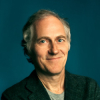Tim O'Reilly

Tim O'Reilly
Tim O'Reillyis the founder of O'Reilly Media. He popularized the terms open source and Web 2.0...
NationalityIrish
ProfessionBusinessman
Date of Birth6 June 1954
CountryIreland
business chewed everybody extract gets goes government model money opposition possible run senior somewhat whose
Everybody who goes into government gets somewhat chewed up in the process. Being a senior appointee is like being at a startup, only more so: You run into opposition from the entrenched oligopoly of contractors whose business model is to extract as much money from government as possible for doing as little as possible.
applied celebrate enormous expectation financial fix goes love people starts success technology turns
We want to show how technology can be applied to fix our problems. We need to celebrate not just success but to celebrate people who make a difference. It starts with people who do things for love, with no expectation of return. Some of that turns into enormous financial success, and then some of it goes back into doing it for love.
act companies copyright crops fertile goes great patent regime soil sure unless
You grow great crops in great soil. And the soil is the commons. Increasingly, we have monopolistic companies that try to take as much as they can for themselves. And we have a patent and copyright regime that makes sure that nothing goes back into the commons unless by an extraordinary act of generosity. This is not fertile soil for innovation.
anybody believe course incredibly knows people realize stuff
There is people who make stuff with words. There is people who make stuff with programs. And I really believe that that whole creative culture, people didn't realize how creative programming is. And anybody who's done it of course knows that not only is it creative, but it's incredibly absorbing.
business change company conference helps knowledge spreading
At O'Reilly, the way we think about our business is that we're not a publisher; we're not a conference producer; we're a company that helps change the world by spreading the knowledge of innovators.
audience boring deliver few lousy opportunity paid speakers works
There are a lot of lousy conferences that pander to sponsors. They end up creating an opportunity for boring speakers who are paid shills for their companies. We still get a few of those, but we really try to police it. Think about who the audience is and what works for them, and deliver high-quality content.
market stories
We don't market products narrowly. We market big stories about the industry, things that matter to a lot of people.
came develop saw services
I came up with the idea that I wanted to develop products because I saw services businesses being a dead end long term.
creation pc require services shift software web
One of the big changes at the heart of Web 2.0 is the shift from the creation of software artifacts, which is what the PC revolution was about, to the creation of software services. These are services that ultimately, if they are successful, will require competencies of operation, of scale, and the like.
advantages advertise groups hard network spread thousands user whom
One of O'Reilly's advantages is that we have a network of thousands of user groups to whom we give free books, to whom we advertise our products, and they spread the word. If you don't have that database, it's hard to get the attention of the market.
burst close companies dominant ecosystem friendly less time
So many technologies start out with a burst of idealism, democratization, and opportunity, and over time, they close down and become less friendly to entrepreneurship, to innovation, to new ideas. Over time, the companies that become dominant take more out of the ecosystem than they put back in.
coming cool fresh generation government harness opportunity service since talent work
There is a possibility of fresh talent coming to work for the government. Millennials are the most public-spirited generation since the 1960s. There is an opportunity to harness that generation and make government service cool again.
bled effect industrial major overall pc
Just as the PC bled back into industrial economy, I think the Internet is going to bleed back into our overall economy and have a transformative effect on major sectors that we don't yet foresee.
bit desirable extremely known money pay suffer
If you are extremely well known and have a very desirable product, then yes, you probably do suffer a bit from piracy, in the same way that if you make a lot of money, you pay more in taxes than if you don't make any money.